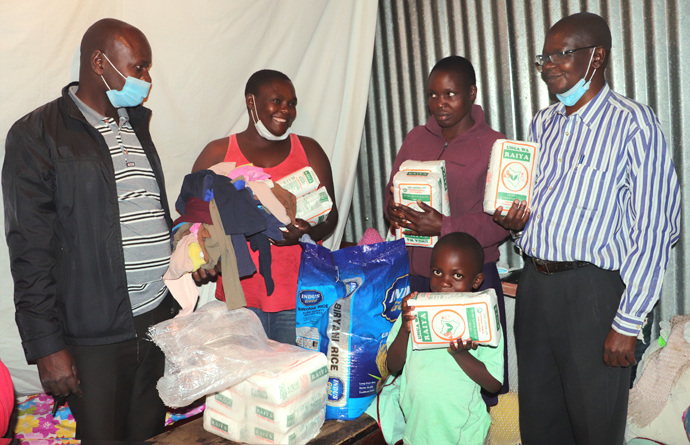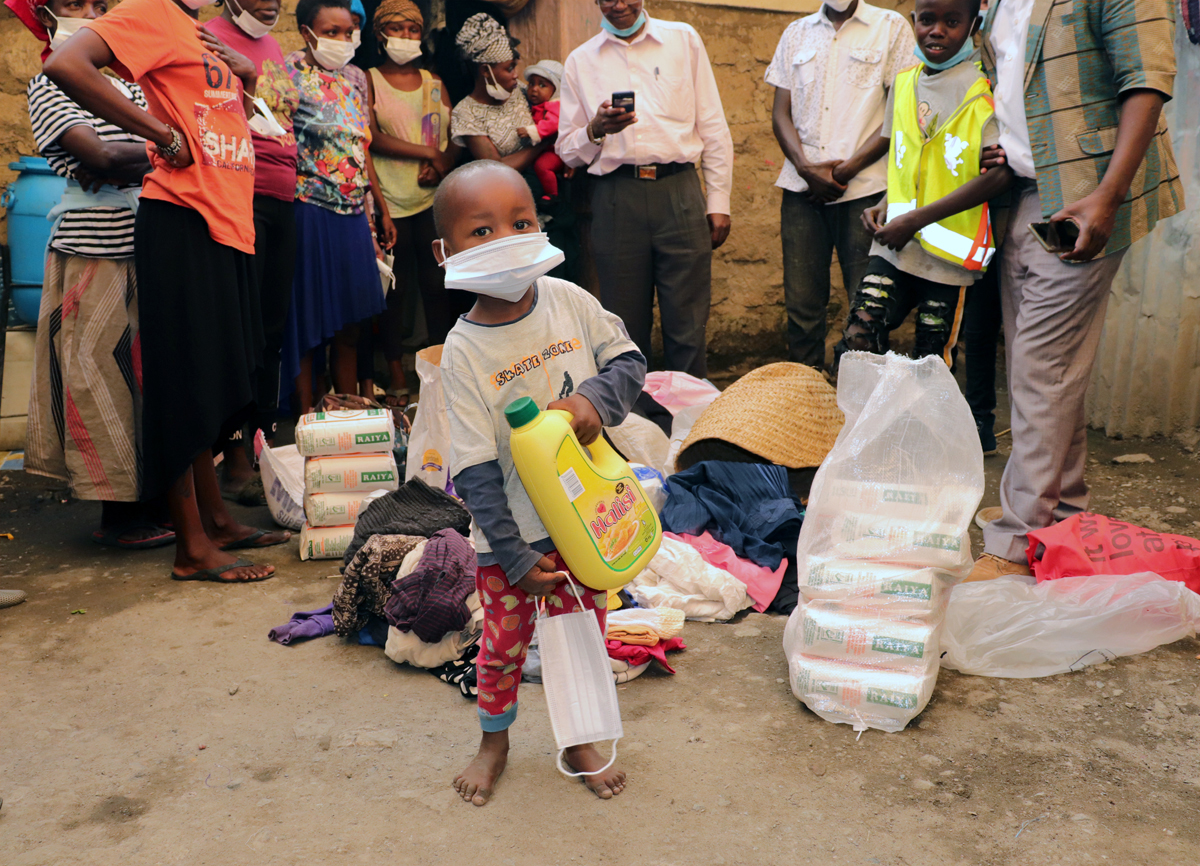United Methodists in Kenya are helping homeless women and children overcome the challenges exacerbated by COVID-19.
The initial goal of the Homeless Compassion Ministry, a program of the Nairobi District, was to identify a few children who were homeless or at-risk of becoming homeless due to the worsening living conditions of parents and guardians residing in slums.
The Rev. Patrick Wandera, senior pastor at Kayole St. John United Methodist Church, said the ministry assists neglected, needy, orphaned, vulnerable, deprived and destitute children and youth ages 3 to 15. Most are from the Kayole-Soweto slums in Nairobi.
Wandera is grateful for the Rev. Ronald McCant, a retired United Methodist elder from Florida, who currently provides monthly food and education support for seven homeless children. Due to the pandemic, however, the number of homeless children served has increased to 30, threatening the program’s sustainability.
“We help the children by paying their school fees, giving them alternative shelter, food, clothing and medical attention,” Wandera said. Most of the school-age children attend Dr. B.T. Cooper United Methodist School in Nairobi.
“Some have substance-abuse problems,” Wandera said. “Some suffer from mental illness. Every one of them wants something the rest of us want as well: love and understanding.”
Ann Mumbua gave birth to her first child while she was living on the streets. She said a good Samaritan rescued her and helped her move into a tiny room in a Kayole-Soweto slum. Four friends joined her.

“I live with eight children in my small room that triples as a sitting (room), kitchen and bedroom,” Mumbua said. “These children were born and abandoned on the streets.”
Children live on the street due to parental death or neglect, as well as social factors such as violence and abuse at home or in the community. Some women and children are left to scavenge for food, shelter and clothing in slum dumpsites. Dwelling in tents, lean-tos, and plywood and tarp contraptions, they live along the contaminated waters of the Nairobi River.
Janet Kerubo was thrown out of the house by her husband who suffers from alcoholism. Today, through the homeless ministry, she receives monthly support of food, rent and school fees for her three sons.
Kerubo, a recovering alcoholic, is now an active member at St. John United Methodist Church.
Andrew Momanyi, a representative from the local authority, noted that funding for the Homeless Compassion Ministry is a constant struggle.
“I dream that one day, we will come together in great numbers as people of good will to end the street families’ menace,” he said.
The Rev. Wilton T. Odongo, Nairobi District superintendent, said many people ignore the homeless, partly because they believe there is little they can do to “fix” them. Odongo believes that it is not God’s intention that we “fix” them any more than God intends that they “fix” us.

Pastors share a joyful moment with a family after providing them with food items from the Nairobi District’s Homeless Compassion Ministry. The United Methodist program is providing relief for the homeless in Kenya, who are especially vulnerable during the global pandemic. Photo by Gad Maiga, UM News.
The ministry is rooted in the Bible, he said.
“As the church, we are passionately committed to serving the poor,” Odongo said. “It is our obligation as Christians to give service and provide better places for others to live in, and to attend to those in dire need.”
Like many other charities, the homeless ministry is facing financial difficulties intensified by COVID-19.
“Nairobi Homeless Ministry,” Odongo said, “is fully reliant on individual donations to continue its important work that is aligned with the vision and mission of The United Methodist Church, seeking to improve the quality of life and opportunities for all God’s people and overcome poverty together.
“God has not forsaken them,” he added. “They are under bridges, on street corners and in dark alleys for (God’s) greater purpose — the same purpose that puts us in our homes, at our jobs and with our families.”
Maiga is a communicator for the Kenya-Ethiopia Conference.
News media contact: Julie Dwyer at [email protected]. To read more United Methodist news, subscribe to the free Daily or Weekly Digests.
Like what you're reading? Support the ministry of UM News! Your support ensures the latest denominational news, dynamic stories and informative articles will continue to connect our global community. Make a tax-deductible donation at ResourceUMC.org/GiveUMCom.




